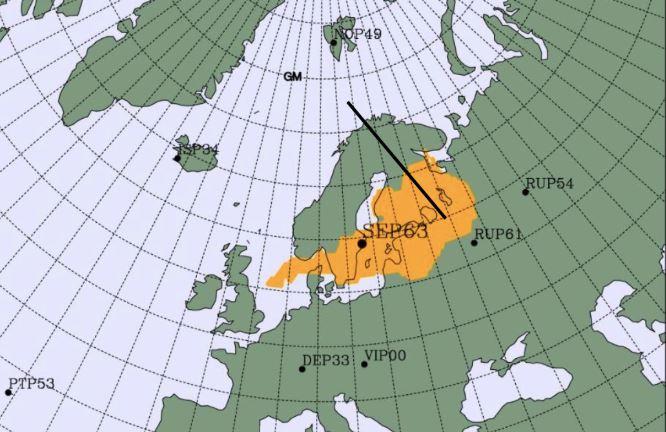
Russia has denied any nuclear incidents after an international body detected unusual radioactive isotopes produced by nuclear fission in northern Europe.
Last week in Sweden, a station of the Comprehensive Nuclear Test Ban Treaty Organization (CTBTO), which monitors the world for evidence of nuclear weapons tests, detected unexplained "higher than usual levels" of radioactive isotopes that likely came from somewhere around the Baltic Sea, Radio Free Europe / Radio Liberty (RFE/RL) said.
Read alsoPutin allows nuclear response to conventional threats
The CTBTO head, Lassina Zerbo, tweeted on June 26 that the elevated levels of three radionuclides generally associated with civil nuclear activities – cesium-134, cesium-137, and ruthenium-103 – had been detected on June 22-23.
But the group also said later the same day that the levels it saw were "not harmful for human health."
Russia's Federal Service for Surveillance on Consumer Rights Protection and Human Wellbeing (Rospotrebnadzor) said on June 29 that it had measured radiation levels after the CTBTO's report and all measurements "indicated stability."
The Rospotrebnadzor's press service stressed that Russia's executive bodies, monitoring the radiation situation, did not confirm the information in question.
Kremlin spokesman Dimitry Peskov also said on June 29 that Russia's "state-of-the-art, modern radiation safety monitoring system" had not registered any "threatening situations or emergencies."
Rosenergoatom, a unit of the state nuclear company Rosatom, said over the weekend that Russia's two northwest nuclear power plants, in the Leningrad region and Kola peninsula, were working normally and radiation levels were unchanged.

